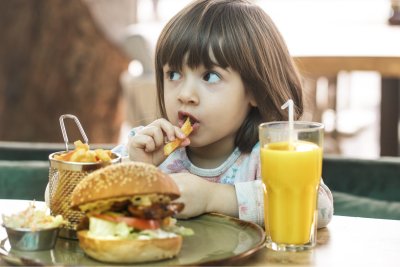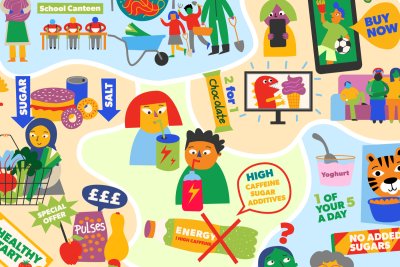News • Children's Food Campaign
Sat Fat Pledge
Children’s Food Campaign responds to the launch of the new Department of Health Responsibility Deal Pledge on Saturated Fat:
Malcolm Clark, co-ordinator of the Children’s Food Campaign, said:
The government continues to set a low bar for the food industry in improving the healthiness of their products. At least this time the Department of Health seems to have learnt from past criticism of the Responsibility Deal and has encouraged companies to focus on reformulation. It is only through taking out the ‘hidden nasties’ from food that real progress towards a healthier diet can begin.
The saturated fat pledge suffers from some of the same weaknesses as previous pledges: there is a lack of quantifiable targets, there is no proper of way of holding companies to account for their pledges, and - importantly - no stick to persuade over 50% of the food industry who haven’t yet signed up, to join.
The government still seems unwilling to take the lead: whether through regulation, or even as a first step by naming and shaming those companies which have not signed up to the pledge. Meanwhile, junk food marketing continues to be targeted at children and families at every turn - at a cost to our health, and ultimately to the nation’s finances.
In terms of the specific pledges made:
(i) Several of the pledges are about making chocolate (e.g. Kit Kat, Oreos) and cakes a tiny bit less unhealthy. The government should be doing much more to reduce the sugar - a significant ‘hidden nasty - from these and other products.
(ii) There is no account taken of the size of the company. So Tesco - the UK’s largest retailer - has pledged to remove a third fewer tonnes of saturated fat (32 tonnes) from its food than the smaller Morrisons (50 tonnes).
(iii) Subway already seems to have implemented their pledge - at least as described on their website http://subway.co.uk/menu/kids-pak.aspx. Rather than them resting on their laurels for the remainder of the year, they should have pledged to go further.
(iv) Two of the Mondelez products named - Oreos and Barny - are targeted at children. The health benefits would be much more significant if these sugar-filled snacks were not promoted to children (or to the parents of young children) at all.
However, at least this time the Department of Health seems to have learnt from past criticism of the Responsibility Deal and has encouraged companies to focus on reformulation. It is only through taking out the ‘hidden nasties’ from food that we can make real progress towards a healthier diet.
Malcolm Clark, co-ordinator, Children’s Food Campaign
malcolm@sustainweb.org (m) 07733322148
Published Saturday 26 October 2013
Children's Food Campaign: Better food and food teaching for children in schools, and protection of children from junk food marketing are the aims of Sustain's high-profile Children's Food Campaign. We also want clear food labelling that can be understood by everyone, including children.





